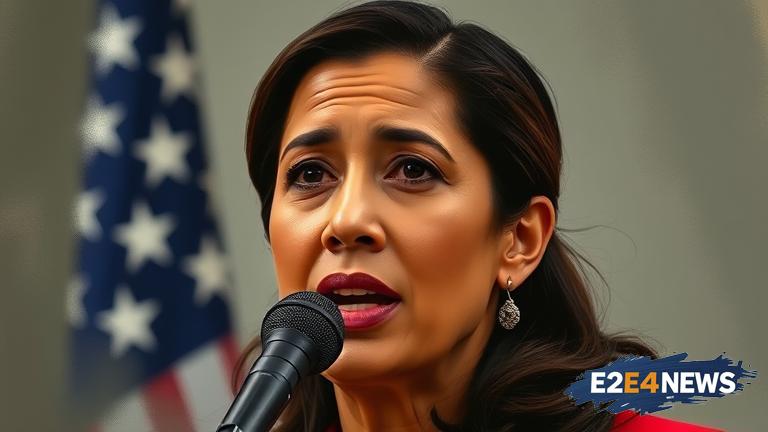In a recent statement, Tulsi Gabbard, a former Democratic Representative from Hawaii, has sparked controversy by accusing former President Barack Obama of treason. Gabbard claims that Obama’s administration knowingly perpetuated the Russia hoax against former President Donald Trump, which she believes constitutes treason. The Russia hoax refers to the allegations of Russian interference in the 2016 US presidential election and the subsequent investigation into potential collusion between the Trump campaign and Russian officials. Gabbard’s comments have ignited a heated debate, with many of her critics accusing her of spreading conspiracy theories and misinformation. However, Gabbard’s supporters argue that she is simply speaking truth to power and highlighting the need for greater transparency and accountability in government. The Russia hoax has been a highly polarizing issue, with many Democrats believing that it was a legitimate investigation into potential wrongdoing by the Trump campaign, while many Republicans see it as a witch hunt designed to undermine Trump’s presidency. Gabbard’s accusations against Obama are likely to further divide the country and spark renewed debate about the Russia hoax and its implications. The former President has not yet responded to Gabbard’s claims, but it is likely that he will face increased scrutiny and criticism in the coming days. Gabbard’s comments have also raised questions about her own motivations and potential political ambitions, with some speculating that she may be seeking to position herself as a prominent voice in the Republican Party. The controversy surrounding the Russia hoax and Gabbard’s accusations against Obama is likely to continue for some time, with many Americans eagerly awaiting further developments and revelations. As the debate rages on, it is clear that the Russia hoax remains a highly contentious and sensitive topic, with many people on both sides of the aisle holding strong opinions and beliefs. The accusations against Obama have also sparked a wider conversation about the role of government and the media in shaping public opinion and influencing political outcomes. Some have argued that the Russia hoax was a prime example of how the media and government can work together to create a narrative that is not supported by facts, while others believe that the investigation was a necessary and legitimate response to concerns about Russian interference. The controversy has also highlighted the deep divisions and mistrust that exist within American society, with many people questioning the integrity and motivations of government officials and the media. As the country continues to grapple with the implications of the Russia hoax and Gabbard’s accusations against Obama, it is clear that the road to healing and reconciliation will be long and difficult. The need for greater transparency and accountability in government has never been more pressing, and it is likely that the controversy surrounding the Russia hoax will continue to drive demands for reform and change. In the end, the truth about the Russia hoax and Obama’s role in it may never be fully known, but one thing is certain – the controversy has left a lasting impact on American politics and society. The debate surrounding Gabbard’s accusations against Obama is a reminder that the truth is often complex and multifaceted, and that different people can have vastly different perspectives and beliefs about the same issue. As the country moves forward, it is essential that Americans engage in respectful and open-minded dialogue, seeking to understand different viewpoints and perspectives. By doing so, we can work towards a more informed and nuanced understanding of the issues that shape our world. The Russia hoax and Gabbard’s accusations against Obama are a stark reminder of the importance of critical thinking and media literacy in today’s complex and often confusing world. As we navigate the complexities of modern politics and society, it is essential that we remain vigilant and discerning, seeking out credible sources of information and evaluating evidence carefully. Only by doing so can we hope to uncover the truth and make informed decisions about the issues that matter most. The controversy surrounding the Russia hoax and Gabbard’s accusations against Obama is a powerful reminder of the need for greater transparency and accountability in government, as well as the importance of critical thinking and media literacy in today’s complex world.
